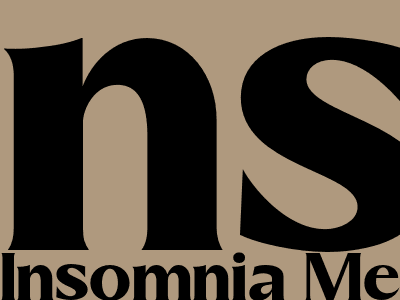Insomnia: Meaning, Symptoms, Causes & Treatment
What is Insomnia?
Insomnia is a common sleep disorder that makes it hard to fall asleep, stay asleep, or both. People with insomnia often wake up feeling tired and unrested. They may also have difficulty concentrating, paying attention, and making decisions.
Insomnia can be short-term (acute) or long-term (chronic). Acute insomnia usually lasts for a few days or weeks and is often caused by stress, anxiety, or a change in sleep schedule. Chronic insomnia lasts for more than three months and can be caused by a variety of factors, including medical conditions, medications, and mental health disorders.
Symptoms of Insomnia
The most common symptoms of insomnia include:
- Difficulty falling asleep
- Waking up frequently during the night
- Waking up too early in the morning
- Feeling tired and unrested during the day
- Difficulty concentrating
- Difficulty paying attention
- Difficulty making decisions
- Irritability
- Anxiety
- Depression
Causes of Insomnia
There are many different factors that can contribute to insomnia, including:
- Stress: Stress is a common cause of insomnia. When you're stressed, your body produces hormones like cortisol and adrenaline, which can make it difficult to fall asleep and stay asleep.
- Anxiety: Anxiety is another common cause of insomnia. People with anxiety often worry about things that could go wrong, which can make it difficult to relax and fall asleep.
- Depression: Depression is a mental health disorder that can lead to insomnia. People with depression often have difficulty sleeping because they're tired and unmotivated.
- Medical conditions: Some medical conditions can also lead to insomnia. These conditions include thyroid problems, diabetes, and heart disease.
- Medications: Some medications can also cause insomnia as a side effect. These medications include antidepressants, decongestants, and steroids.
- Alcohol and caffeine: Alcohol and caffeine can also interfere with sleep. Alcohol can make you fall asleep quickly, but it can also disrupt your sleep later in the night. Caffeine can also make it difficult to fall asleep.
- Sleep environment: Your sleep environment can also affect your sleep. A bedroom that is too hot, too cold, too noisy, or too bright can make it difficult to fall asleep and stay asleep.
Treatment for Insomnia
There are a variety of treatments for insomnia, including:
- Cognitive-behavioral therapy (CBT): CBT is a type of talk therapy that can help you learn how to manage stress, anxiety, and depression. CBT can also help you improve your sleep habits.
- Medication: There are a number of medications that can be used to treat insomnia. These medications include benzodiazepines, non-benzodiazepine sedatives, and melatonin.
- Lifestyle changes: There are a number of lifestyle changes that you can make to improve your sleep. These changes include getting regular exercise, eating a healthy diet, and avoiding alcohol and caffeine before bed.
Conclusion
Insomnia is a common sleep disorder that can have a significant impact on your life. If you're struggling with insomnia, talk to your doctor. There are a variety of treatments available that can help you get a good night's sleep.

Komentar